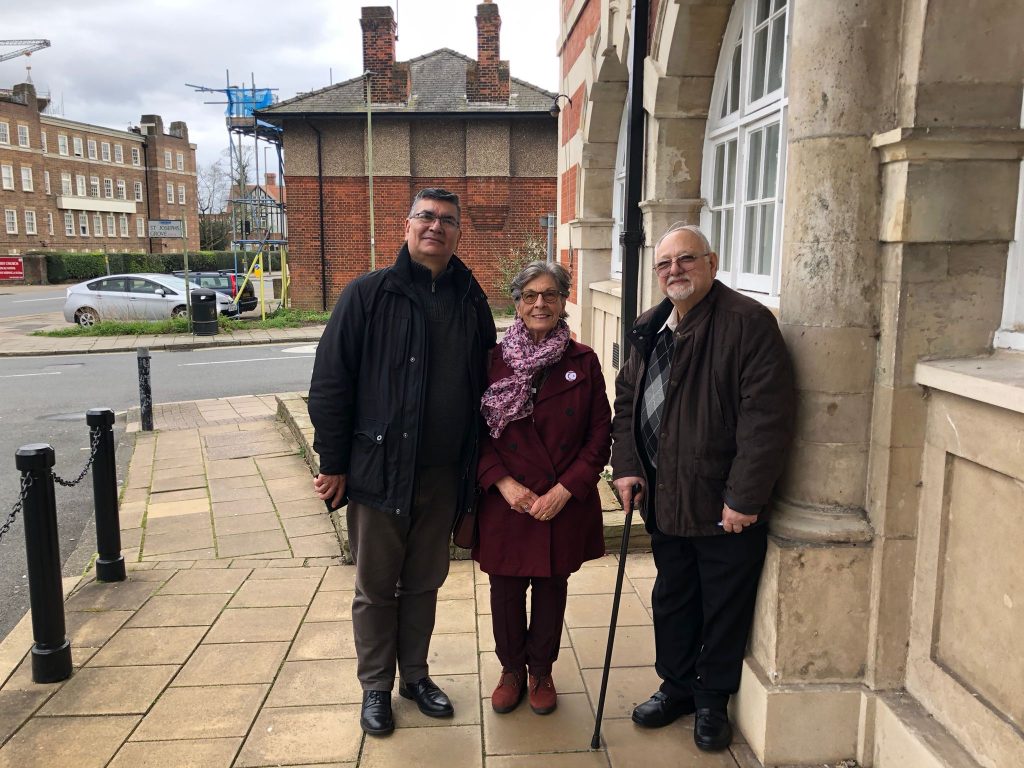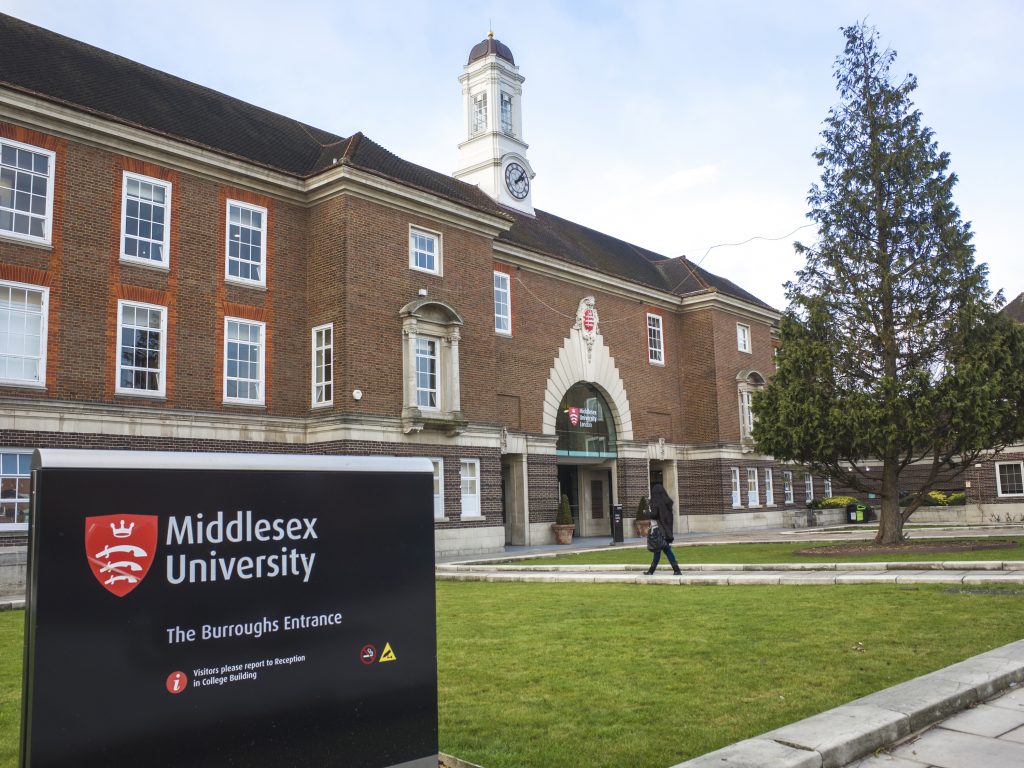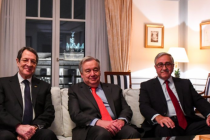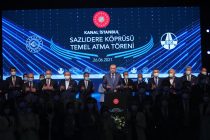A university accused of hosting an “anti-Turkish” seminar has rejected the claims, asserting that the event “included a diverse range of views and perspectives from all communities impacted.”
Middlesex University School of Law came under fire ahead of its ‘Human Rights in Cyprus Lecture’ held at Hendon Town Hall in North London last week. It was the second time the university had hosted such an event.
The free lunchtime lecture, hosted jointly with Barnet Council, on Monday, 18 March, was publicised online. The event description said participants included the “Mayor of Morphou Cyprus delegation, Mayor of Barnet, The High Commissioner of Cyprus in the UK and MDX School of Law”.
The 90-minute ‘Human Rights in Cyprus Lecture’ had four speakers: Professor Elvira Dominguez-Redondo, a professor in International Law at Kingston University, who served as the event chair. She was joined by Dr Alice Donald, Ms. Aphrodite Yiasemi, and Professor William Schabas, who are all law lecturers at Middlesex University.
The choice of terms for the speakers’ topics, such as “invasion” and “occupation”, suggested the speakers would present solely the Greek Cypriot view of the conflict, and seemingly frame Turkiye (Turkey) as responsible for the Cyprus conflict and human rights violations.
Dr Donald’s talk was titled: “The “right to truth”? The duty on Turkey to investigate and provide redress for enforced disappearances during the invasion and occupation of Cyprus in 1974.”
Ms Yiasemi spoke about “Cypriot refugees: Past and Future”, while Professor Schabas’s talk was on ‘Developments in the law of occupation’.
The promotional details led to the chair of the British Turkish Cypriot Association Kenan Yaman describing the planned lecture as “anti-Turkish prejudice”.
He told T-VINE: “We’ve come to expect this type of Turkey-bashing propaganda from the Greek Cypriot authorities and their diaspora groups, but it’s really disappointing to see the Mayor of Barnet and the Council host such an event. What message does this send to the borough’s citizens of Turkish and Turkish Cypriot descent, some of whom are victims of the conflict too?
“It’s also unbecoming for law lecturers at Middlesex University to be part of such a one-sided seminar. As any student of Cyprus history will know, both Turkish Cypriots and Greek Cypriots suffered during the conflict, which started in 1963 not 1974! Both communities were displaced, both have endured massive trauma through the war, there are missing persons and human rights violations on both sides.
“It is deeply dishonest and offensive to present Turkey as solely responsible for the events in Cyprus. On 15 July 1974 a coup planned by the Junta regime in Greece and executed by her henchmen in Cyprus are well documented. The whole thing smacks of anti-Turkish prejudice and it’s unacceptable!”
Middlesex University statement
In response, the day after the event Middlesex University sent T-VINE this statement:
“Yesterday’s [Monday 18 March 2024] event at Hendon Town Hall was held within the context of the London Borough of Barnet’s twinning with the town of Morphou in Northern Cyprus.
“The lecture did not seek to blame one government or community and the event Chair emphasised at the beginning of the event that there are two sides to the debate and ensured that the discussions included a diverse range of views and perspectives from all communities impacted. It included figures for missing people from both the Turkish Cypriot and Greek Cypriot communities.
“Middlesex University academics were involved solely to provide insight and legal expertise. The event clearly highlighted the strength of feeling and pain still experienced by all communities while also opening the door to further dialogue.”
The lack of Turkish Cypriot representation on panel “speaks volumes”
Yet Turkish Cypriots who attended this event refute what the university said. Among them was Ersu Ekrem, who lived through the conflict years in Cyprus. He told T-VINE:
“I went to this seminar with an open mind, but I was shocked at how poor the presentations were. None of the speakers seemed aware that the Cyprus conflict started in 1963, not 1974. They didn’t explain the context of why Turkiye intervened in the island in 1974.

“Their primary focus was on how Greek Cypriots suffered and this community’s legal rights. Even on this, such as explaining refugee property rights vis-a-vis the landmark Demopoulos case, the speaker misled the audience and omitted vital details.”
Mr Ekrem, who is a former BTCA chair, also highlighted the lack of Turkish Cypriots on the panel as reflective of the event’s bias:
“Despite there being no Greek Cypriot Mayor of Morphou since 1975, there was a representative of this non-existent position. The fact no invite was extended to the current Turkish Cypriot Mayor of Güzelyurt [Turkish name for Morphou] Mahmut Ozcinar – despite the town being full of Turkish Cypriot refugees – speaks volumes.
“The lecture also gave a platform to Greek Cypriot High Commissioner Andreas Kakouris, but there was no equivalent for Turkish Cypriots. Mr Kakouris was allowed to present all kinds of wrong information. He said the division of Cypriots was because of Turkiye in 1974 when it started a decade earlier in 1963-64, when the Green Line was drawn & UN troops arrived on the island.
“Mr Kakouris claimed Russia’s invasion of Ukraine was on a par with Turkiye’s actions, ignoring the fact Turkiye had a legal right and duty to intervene in Cyprus as a Guarantor Power under the 1960s Treaties. Mr Kakouris also made reference to the 200,000 Greek Cypriots who were displaced people, yet omitted entirely that half of all Turkish Cypriots were made refugees. He also talked about a need for a settlement but failed to mention it’s the Greek Cypriot side that has repeatedly rejected the plans presented by the UN to reunify the island. His comments were pure propaganda.”
Barnet Council and Middlesex University should “apologise”
Mr Ekrem said he was given the chance to speak during the question and answer session, but felt it was insufficient to rectify the many inaccurate claims he believes was made during the lecture.
“I was given the chance to speak after the presentations, but I could only address a handful of points. I came away really upset and frustrated.
“As a victim myself I’m appalled at the level of historical revisionism I heard. I would expect university lectures to be more objective and more accurate with how they portray such events, and for such a lecture to give equal weight to the rights and suffering of both Cypriot communities.”
Mr Ekrem said he and the other Turkish Cypriots who attended the event were planning to make a formal complaint to both Barnet Council and Middlesex University for facilitating “anti-Turkish propaganda”.
“I think Barnet Council and Middlesex University need to acknowledge how biased this lecture was, apologise and give an undertaking not to repeat what can only be described as anti-Turkish propaganda,” Mr Ekrem said.
Main photo, top, of the entrance to Middlesex University London’s Hendon campus, in North London, Jan. 2018. Photo © William Barton / shutterstock




